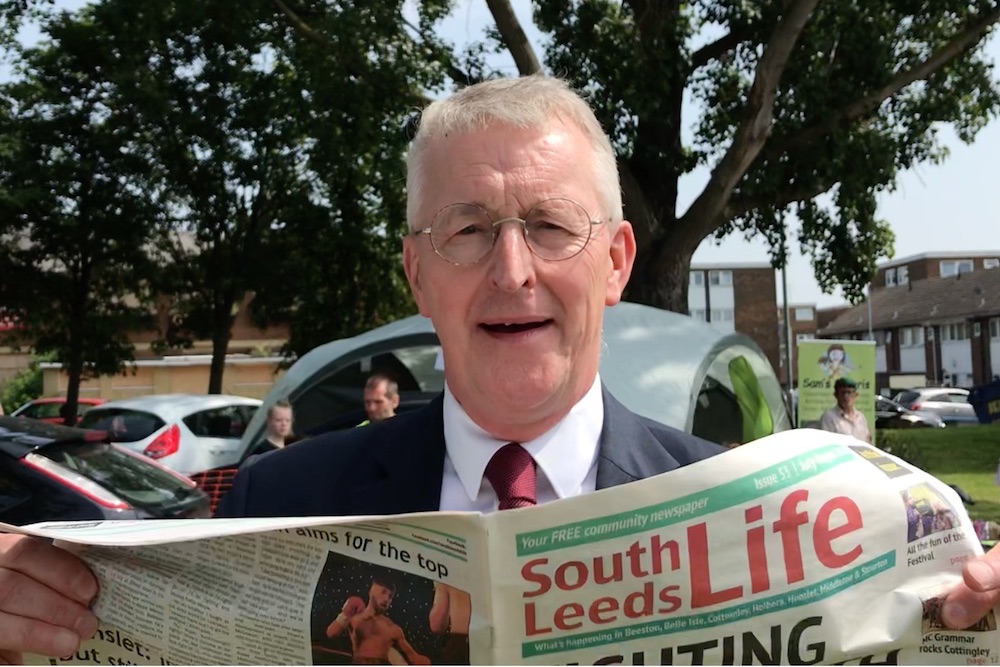
The killing of Sir David Amess while serving his constituents came as a great shock, and our hearts go out to his wife and family.
He was much liked on all sides of the House of Commons for his cheerfulness, good humour and utter dedication to his constituency.
Just five years after the murder of Jo Cox, it is hard to believe that another MP has been killed in the line of duty. An attack on one MP is an attack on us all and on the democracy that we cherish.
Sadly, there are many other public servants who face similar risks and who have been killed doing their jobs, and it is their families who pay a terrible price as they learn the dreadful news that the person they loved isn’t coming home.
Inevitably, security is being reviewed. There must be sensible precautions to protect MPs and their staff, but I do not want us to become remote from the people we serve. After all, that is the very essence of what we do.
A new report from Imperial College has revealed that life expectancy for women in Hunslet and Stourton is lower than anywhere else in England; the average age of death for women is just 75. The report also says that in Holbeck, life expectancy is actually falling. Women there are now dying three years earlier than they were in 2002.
These figures are shocking, especially the decline in life expectancy, but they are not surprising. We’ve known for a very long time that there are huge differences between the richest and the poorest communities in how long people live, with lower life expectancy associated with unemployment, insecure jobs, low wages, reductions in social and welfare support, poorer nutrition, bad housing and reduced funding for local government. This levelling down in life chances shows how political choices affect people’s health.
I recently popped into The Holbeck to visit the Slung Low team. Their artistic director Alan Lane wanted to show me the brand new lift that’s just been installed. It’s very impressive and now makes the building accessible.
While I was there, I met people arriving for an English language class in the snooker room, an apprentice who was helping to make a film upstairs and a comedian who was also making a piece who kindly presented me with three marbles (I have still have them in every sense!). The car park is now nicely laid out and there are colourful oil drums with poles for festooning lights and bunting on appropriate occasions.
It was wonderful to see the range of things that are now happening in this historic club which only survives because of the huge effort that a dedicated group of Holbeck residents made a few years ago when it seemed likely to close.
My mind went back to the first time I met Alan when Slung Low were based in some railway arches just down the road. I went along with my office team to find out what they were doing and discovered a theatre company dedicated to putting on performances outside of theatres.
They did a wonderful production of Moby Dick a few years ago in Leeds Dock. When the pandemic struck, they clearly couldn’t go on performing, so they decided to become a food bank as if it was the most natural thing in the world. Over the next year or so they helped to feed many families in Holbeck. It’s a wonderful reminder of what can be done with energy, determination and kindness, and I was very touched when they presented me with a framed t-shirt to thank me for the support I have tried to give them.
It’s now clear that COVID hasn’t gone away. Infections have now reached 50,000 in a single day and cases in Leeds are above the national average, although mercifully the vaccine has proved very effective in significantly reducing severe illness and death.
Ministers say that they don’t intend to change the current rules for now, but there was a markedly more sombre tone to the Health Secretary’s recent press conference, and he urged people to get vaccinated, to meet outside where possible and to wear masks in crowded places. I don’t understand why the Government got rid of the requirement to wear masks, for example, on public transport. They should reinstate it now.
Finally, after my recent column about what’s going to replace gas boilers as we reduce CO2 emissions, we have finally seen the plan to decarbonise our homes. It’s undoubtedly ambitious, with a strong emphasis on changing from gas to heat pumps, but the price of a heat pump is still much too expensive for many people to afford.
Let us hope that the grants that are being offered will encourage many more pumps to be produced and the price to come down, but I think we’re going to need more Government funding over the years ahead to help us all to do the right thing.
Meanwhile, the really important climate conference is due to begin in Glasgow. It’s not yet clear whether sufficient commitments will be made by all those attending to give us a reasonable chance of preventing dangerous climate change, but we must keep up the pressure. Time is running out and we need to get a move on.


